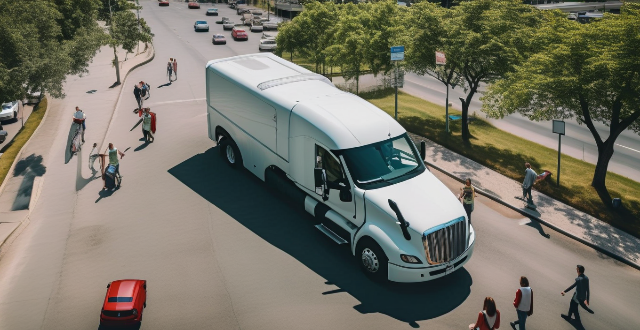Autonomous vehicles will revolutionize daily commutes, reducing traffic congestion, improving safety, increasing productivity, and offering environmental benefits. They also provide accessibility for seniors and people with disabilities.

How Will Autonomous Vehicles Change Our Daily Commutes?
Introduction
Autonomous vehicles, also known as self-driving cars, are set to revolutionize the way we travel. With the ability to navigate roads without human intervention, these vehicles promise to bring about significant changes to our daily commutes. In this article, we will explore how autonomous vehicles are expected to impact our transportation habits and what benefits they may offer.
Reduced Traffic Congestion
One of the most significant advantages of autonomous vehicles is their potential to reduce traffic congestion. By allowing cars to communicate with each other and adjust their speed accordingly, self-driving cars can maintain a consistent flow of traffic, reducing the need for frequent stops and starts. This can lead to shorter commute times and less frustration on the road.
Improved Safety
Autonomous vehicles have the potential to greatly improve road safety by eliminating human error as a factor in accidents. With advanced sensors and algorithms, self-driving cars can detect and respond to potential hazards more quickly than human drivers, reducing the risk of collisions. Additionally, autonomous vehicles can be programmed to follow traffic rules and regulations consistently, further enhancing overall road safety.
Increased Productivity
With autonomous vehicles taking care of the driving, passengers can use their commute time more productively. Instead of focusing on the road, individuals can catch up on work, read, or even take a nap during their journey. This increased productivity can lead to better work-life balance and improved mental health for many people.
Environmental Benefits
Autonomous vehicles have the potential to reduce greenhouse gas emissions and improve air quality by optimizing routes and reducing fuel consumption. By minimizing stop-and-go traffic and maintaining a steady speed, self-driving cars can achieve higher fuel efficiency than traditional vehicles. Additionally, electric autonomous vehicles can further reduce emissions by relying solely on renewable energy sources.
Accessibility for All
Autonomous vehicles can provide greater accessibility to individuals who may not be able to drive themselves, such as seniors or those with disabilities. With the ability to summon a self-driving car at any time, these individuals can enjoy increased independence and mobility without relying on others for transportation.
Conclusion
In conclusion, autonomous vehicles have the potential to transform our daily commutes in numerous ways. From reduced traffic congestion and improved safety to increased productivity and environmental benefits, self-driving cars offer numerous advantages over traditional forms of transportation. As technology continues to advance, it will be fascinating to see how these developments shape our future transportation habits.